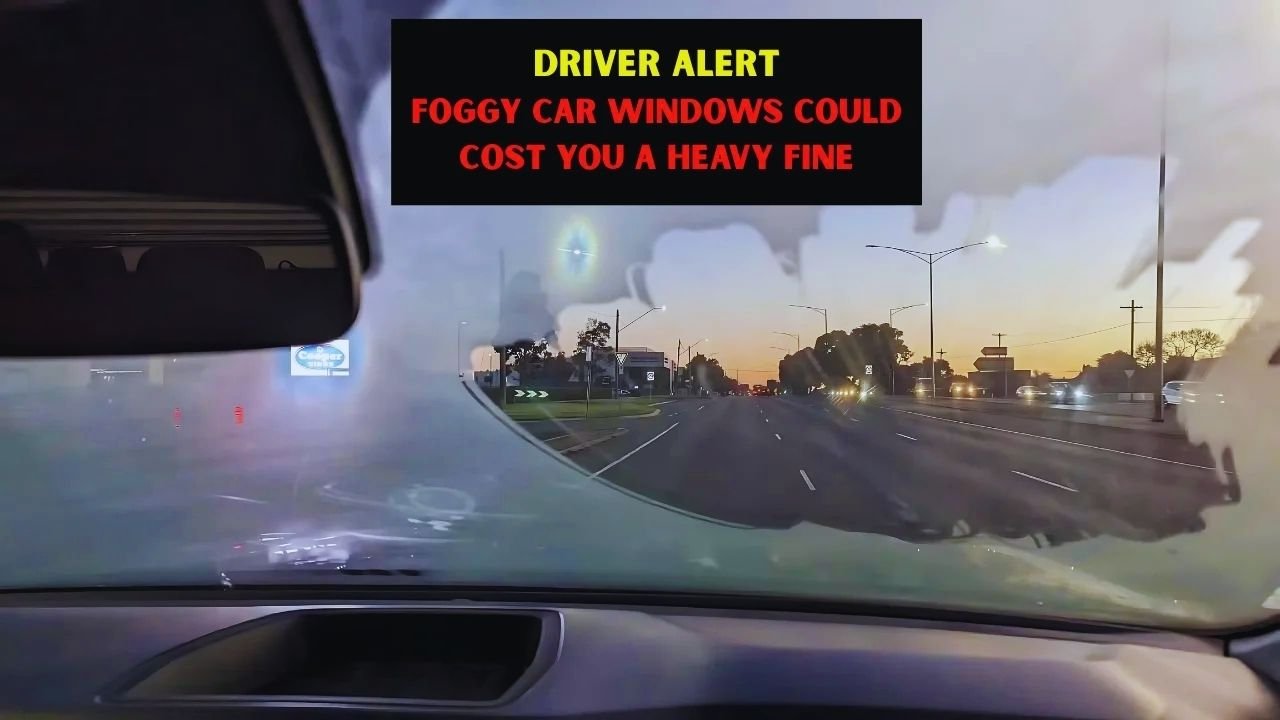Driving with fogged or obstructed windows might seem harmless, but in Australia it’s a serious legal risk. Failing to maintain clear visibility can result in fines of over $400 and demerit points, as well as significantly increase the chances of accidents. Here’s what every driver needs to know about staying safe and compliant.
Why Clear Windows Are a Legal Requirement
Australian traffic laws require drivers to maintain unobstructed visibility through windshields, front, and side windows. Police actively enforce this to ensure road safety. Drivers caught with fogged or dirty windows risk fines and demerit points, which vary by state:
| Offense | Fine Amount | Demerit Points | Applicable Regions |
|---|---|---|---|
| Foggy or unclear windows | $423 | Up to 3 | NSW, VIC, QLD |
| Dirty windshield (grime/dust) | $300 | Up to 2 | All states |
| Non-functional defogger/demister | $400 | Up to 3 | NSW, SA, TAS |
Even minor fogging can obscure pedestrians, cyclists, or other vehicles, reducing reaction time and increasing accident risk.
How Police Enforce Window Visibility
Law enforcement uses patrolling vehicles, cameras, and drones to detect drivers with fogged windows. NSW, Victoria, and Queensland are particularly strict, issuing fines and demerit points to improve compliance and encourage safer driving habits.
Practical Tips to Prevent Foggy Windows
Keeping your windows clear is simple with a few proactive steps:
- Use the car’s heater or defroster to remove condensation quickly
- Switch air circulation to fresh air to prevent moisture buildup
- Apply anti-fog treatments to the glass before driving
- Clean windows regularly, inside and out, to prevent dirt from reducing visibility
- Keep silica gel packets or a small towel in the car to manage moisture
Small habits like these reduce fogging risks and help drivers avoid fines and accidents.
Why Visibility Matters
Even a small patch of fog on a windshield can hide potential hazards. Experts emphasize that clear visibility is not just a legal obligation—it’s a lifesaving measure. Drivers with poor visibility have slower reaction times and higher chances of collisions, especially in rain, cold weather, or low-light conditions.
FAQs
Q: Is it illegal to drive in Australia with fogged-up windows?
Yes. Driving with obstructed windows is a punishable offense, with fines and demerit points depending on the state.
Q: How can I quickly defog my car windows?
Turn on the heater, defroster, or fog setting. Switch air circulation to fresh air, and wipe any remaining condensation with a clean cloth. Anti-fog sprays also help prevent future fogging.
Q: What penalties apply for fogged windows?
Fines range from $300 to $432, with up to 3 demerit points. Persistent violations can impact your license and insurance.
Q: Do I need to maintain defogger systems?
Yes. Non-functional defoggers can lead to fines and demerit points. Regularly check and maintain your vehicle’s ventilation and demisting systems.
Q: Is fogging unavoidable in cold or humid conditions?
Fogging is common, but using defoggers, anti-fog treatments, and proper ventilation can prevent dangerous obstructions.
Conclusion
Fogged car windows are more than an inconvenience—they are a serious safety and legal issue. Maintaining clear visibility is essential to protect yourself and others on the road. Always use your vehicle’s defogging systems, keep windows clean, and adopt preventive measures to avoid fines, demerit points, and accidents. Clear windows save lives, and a few simple steps can make a big difference.




